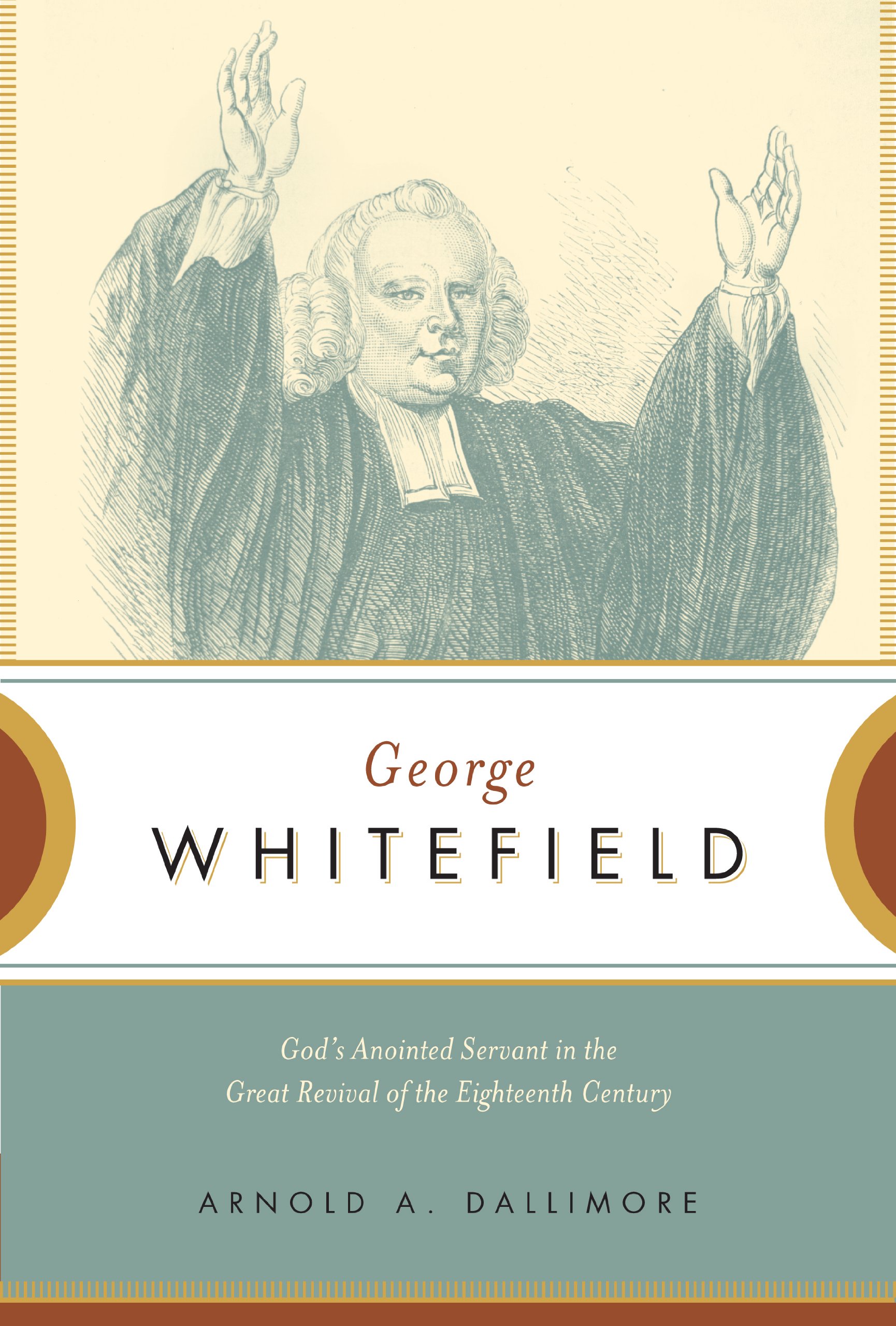I recently read Arnold Dallimore’s biography of George Whitefield. Prompted by a passing comment by Don Carson on a Gospel Coalition video, I decided to dig in, motivated by the fact that Crossway had recently released a condensed one volume paperback of the former two volume, 1200+ page highly acclaimed version. Call me lazy but I was scared off by the larger item but drawn in to the shorter one. (Now that I’ve finished the slim condensation, I hope to tackle the longer original. The story is that gripping).
Here are a few things that stood out to me, which I hope will encourage you, whether you have the gift of evangelism or, far more likely, venture into evangelism timidly as I do.
- Whitefield’s story blends two complementary realities – the sovereignty of God and the diligence of people. You can’t read about Whitefield’s ministry without marveling at the way God worked. He fashioned a man with a flair for the dramatic (13)*, one eye that squinted (creating an especially convicting expression) (15), and a booming voice that could be heard by thousands (48). In the early days of Whitefield’s ministry, before he became extremely busy, he immersed himself in the study of the scriptures for hours and hours every day. Dallimore remarks, “When we shortly see him preaching forty and more hours per week with virtually no time whatsoever for preparation, we may look back upon these days and recognize that he was then laying up a store of knowledge on which he was able to draw amidst the tumult and haste of that later ministry” (22).
- Sometimes, God works in unusual ways to bring about revivals. We should never tire of asking him to do it again. On occasion, Whitefield walked outside to an empty field and began preaching. Inexplicably, people started coming to hear him – by the thousands! One February, “the coldest in memory”, Whitefield preached to a crowd of over 200 on a Saturday, 2000 the following Wednesday, and 4000 two days after that (46). Soon thereafter, he was holding some “thirty meetings a week in and around Bristol” (47) at a time when there was no form of electronic amplification. Later, even skeptical Ben Franklin admitted that Whitefield’s voice could be heard by 30,000 people (76).
- The preaching of the gospel also prompts opposition. Whitefield was hated (107), accused of being “a scandalous idolater (in numerous printed pamphlets) (121, 145), physically attacked (133), shot at with guns (134), “nearly murdered” (138), threatened with assassination in a letter (186), and mocked in a play written especially about him as the main character called “Dr. Squintum” (190).
- Whitefield teamed up with John and Charles Wesley for many evangelistic efforts but came into conflict over the doctrine of predestination. Wesley was so opposed to the doctrine, he published and preached a sermon “against Predestination” in which he said “it is a doctrine full of blasphemy…[that] represents God as worse than the devil” (63). Whitefield also rejected the Wesleys’ acceptance of the view of “sinless perfectionism” in sanctification. It caused a rift in their friendship that Dallimore calls “Whitefield’s darkest hour” (97). Nevertheless, when Whitefield became ill in America and knew that his time on earth was coming to an end, he insisted that John Wesley conduct his memorial service back in England (197).
- Toward the end of his life, Whitefield wrote, “Lord Jesus, I am weary in thy work, but not weary of it” (194). After crossing the Atlantic by boat some 13 times (201), preaching numerous times every day for weeks on end to crowds of thousands against fierce opposition, seeing revival-fueled results, we can certainly understand his sentiment.
Indeed may our sovereign God choose to bring about revival in our day and may we pray fervently toward that end. If you need encouragement in that discipline, Dallimore’s biography of Whitefield could surely help.
* These page numbers refer to the Crossway one volume paperback version of George Whitefield: God’s Anointed Servant in the Great Revival of the Eighteenth Century.



